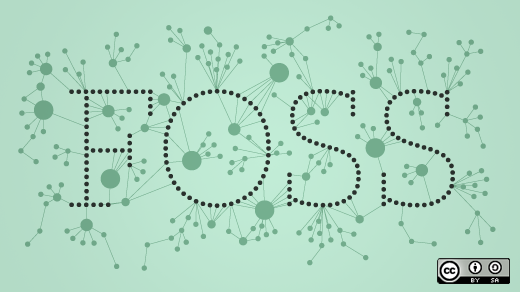Last Thursday the International Free and Open Source Software Law Review (IFOSS L. Rev.) released its second issue on-line in HTML and PDF format. This was not on the front of Slashdot or The Register, but it was one of the more significant developments so far this year in Free Software governance. IFOSS L. Rev. is the first law journal dedicated to Free Software issues. It has a neutral, diverse Editorial Committee, an inclusive process for submissions and provides its content under an open access policy.
This journal was born from a conversation between community developers and commercial interests about adherence to licensing terms that started in 2004. The discussion originated in Europe with the gpl-violations.org project, was further refined by charities like Free Software Foundation Europe e.V ., and now extends to over 200 stakeholders across 27 countries and 4 continents. So far it has resulted in the creation of the European Legal Network, the development of tools to allocate risk in commercial transactions, checklists for common issues, and short documents to assist with reporting problems, creating infrastructure or understand licenses like GPLv3.
I became part of all this in 2006, when FSFE hired me to set up its legal department, a task that ultimately lead to the establishment of the aforementioned legal network. I vividly remember the meeting where Harald Welte and I first discussed how to keep Free Software balanced for all participants as commercial engagement increased. Contrary to what bruised recipients of warning letters might have speculated at times, this has never been about preventing commercial growth, but about ensuring the value of Free Software is available equally to all participants. For this reason gpl-violations.org and FSFE agreed to work closely together as facilitators for Free Software sustainability and growth, something very much in line with FSFE's long term vision of supporting fair access, fair markets and solid infrastructure.
Free Software works because people can use, study, share and improve the code, and the licenses providing these grants establish a foundation that underpins value for hobbyists, researches and businesses alike. Understandably, engagement with this approach has been a learning process for many companies, and quite painful for a small minority. In the early days, there was even speculation from some parties about whether these licenses were actually valid. The definitive moment in creating a market norm was probably when gpl-violations.org formally established GPL validity in Germany via the D-Link case judgment (German original). This shifted discussion away from whether the licenses applied, and instead focused it on what is required to adhere to their terms.
Naturally the gpl-violations.org and FSFE work does not stand alone. In the USA, Free Software Foundation has long had a compliance lab, providing detailed information about Free Software licenses, and acting as the primary source of information for GPL-related questions. Industry stakeholders have established initiatives like FOSSBazaar to share best practice and FOSSology to provide automated auditing. Software Freedom Law Center has been visibile in high-profile license enforcement cases, and released in-depth material explaining legal issues for projects and compliance with GPL licensed code among other things. Recently Linux Foundation has also been instrumental in providing a neutral forum to drive consensus around issues.
Governance is the key term in all these activities. It has been the theme at two European legal events facilitated by FSFE, and basis for various Special Interest Group meetings between legal experts. It provided the backdrop for useful documents hosted on FOSSBazaar and the motivation behind excellent initiatives like the cooperative management of package copyright and licensing data recently discussed by Kate Stewart.
Discussion has shifted away from technical issues as Free Software grows up. There are a lot of new entrants in the field, and investors of all types want to see a sustainable future for this approach to technology. That means introducing structures to ensure fairness, transparency and the ability to isolate problems when things go wrong. It's an on-going conversation that applies whether we are talking about license classification, economic growth, GPL compliance engineering or any other of the multitude of topics that need further exploration throughout the coming months.
During this period Armijn Hemel, an unsung hero of recent European GPL compliance and community/corporate bridge-building, and I will be collaborating with other stakeholders to provide better tools for everyone. This work will build on our recent publications around license compliance for companies, compliance engineering and licensing in consumer electronics, and will codify our knowledge for broader distribution throughout the eco-system.
You can be part of the discussion too. There are a few key ways to share your experience with others. If you are a legal expect seeking direct interaction it's worth attending the FSFE European Legal and Licensing Workshop on the 8th and 9th of April (contact details) or the Linux Foundation legal summit on 10th of February (registration details). If you are a more technical type then the 4th Annual Linux Foundation Collaboration Summit on the 14th to 16th April will be an excellent opportunity to discuss nuts and bolts (registration details).
On the publication side of things, IFOSS L. Rev. has an open call for papers. You can read the author guidelines, download an article template in ODT or RTF format, and submit your article for consideration. Everyone can also join FOSSBazaar and opensource.com to blog or share documents, or even contribute to high quality news outlets like LWN.net. Far from being exclusionary, the recent push towards greater structure in Free Software is an unparalleled opportunity to contribute towards shaping the future of the field.
If you are still getting up to speed, and want to access more material about Free Software, then I humbly suggest the reference library on my company site. While you are there, you might also be interested in playing with the license selection tool or adding yourself to the growing list of experts that we host. Of course feedback is always welcome.
As people in the GNU project say, happy hacking.







4 Comments